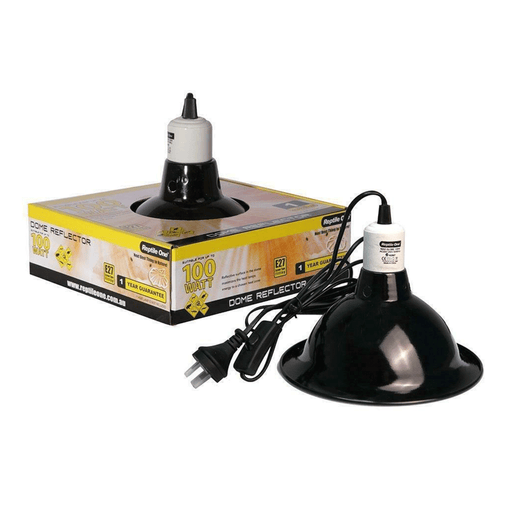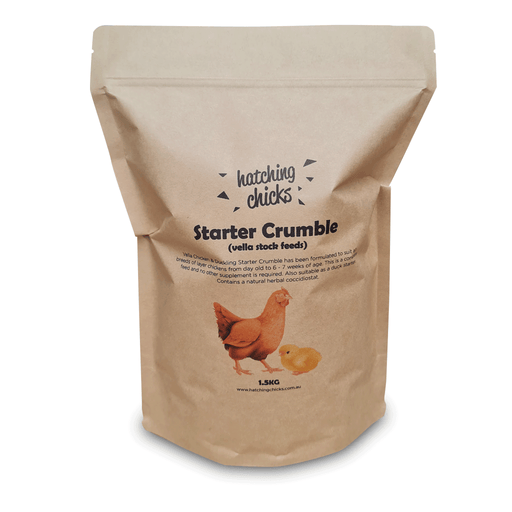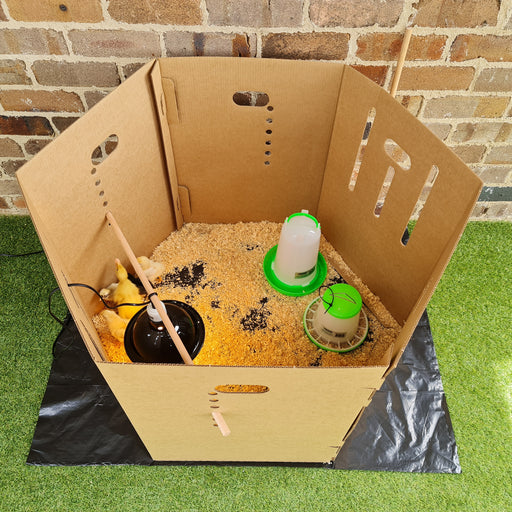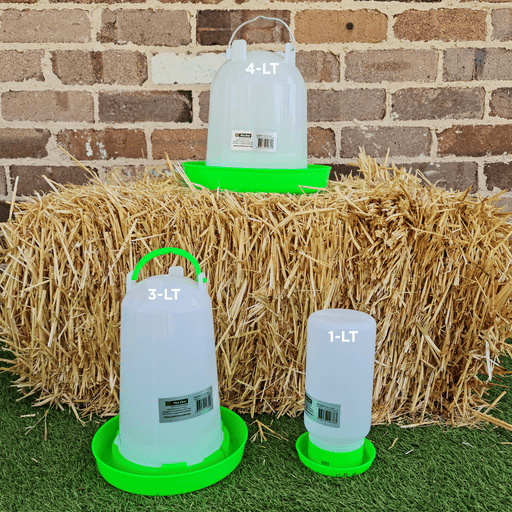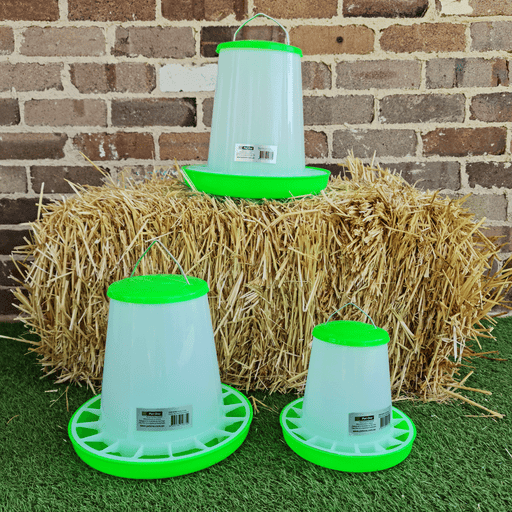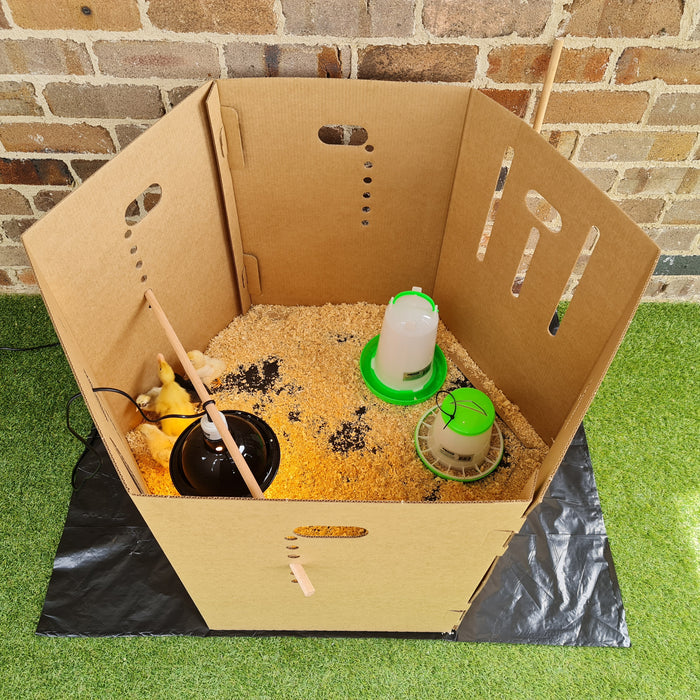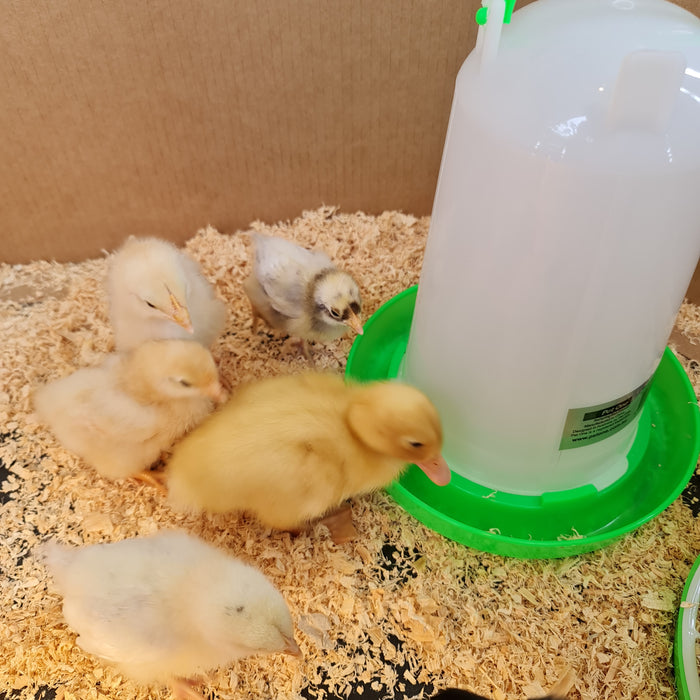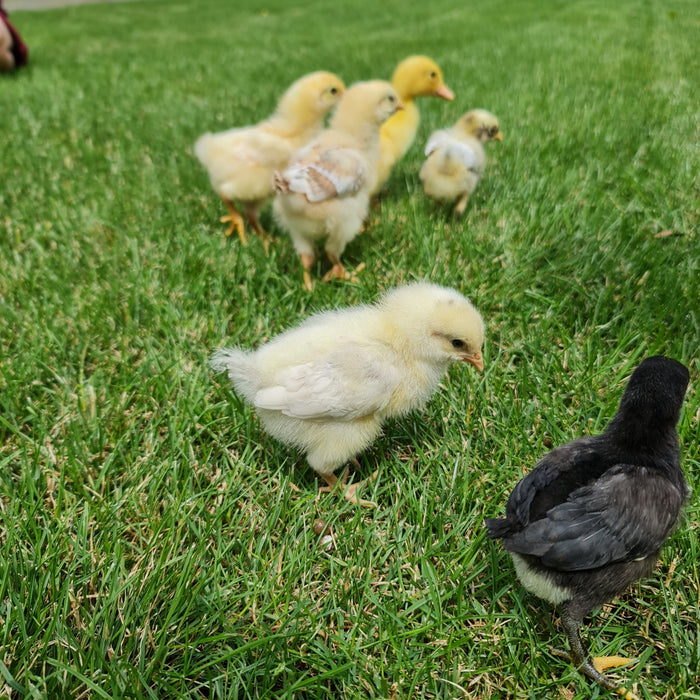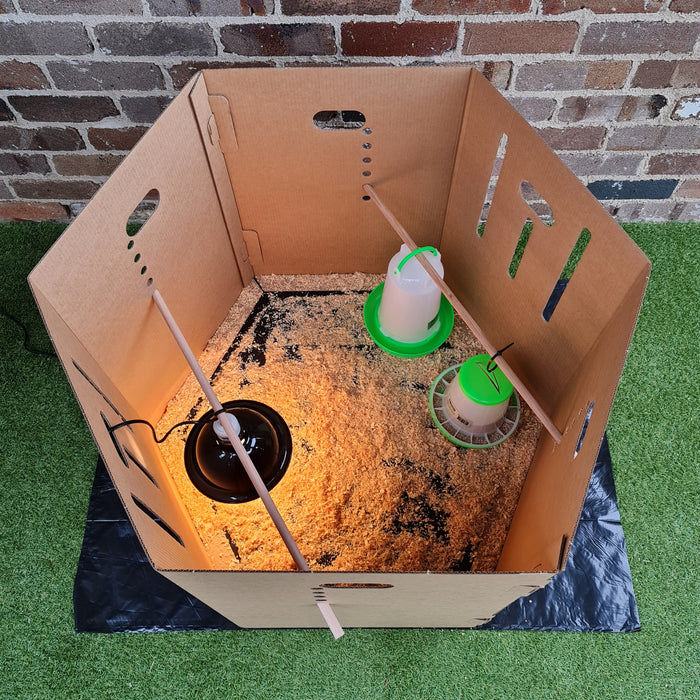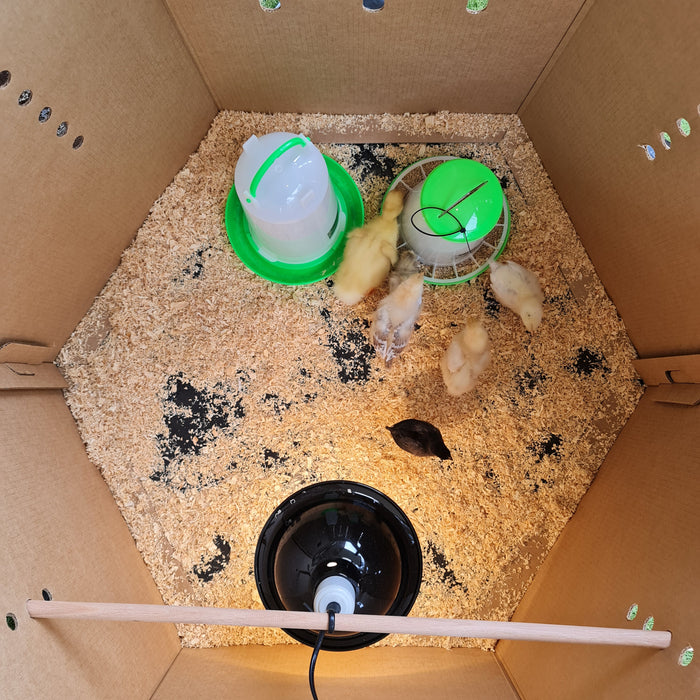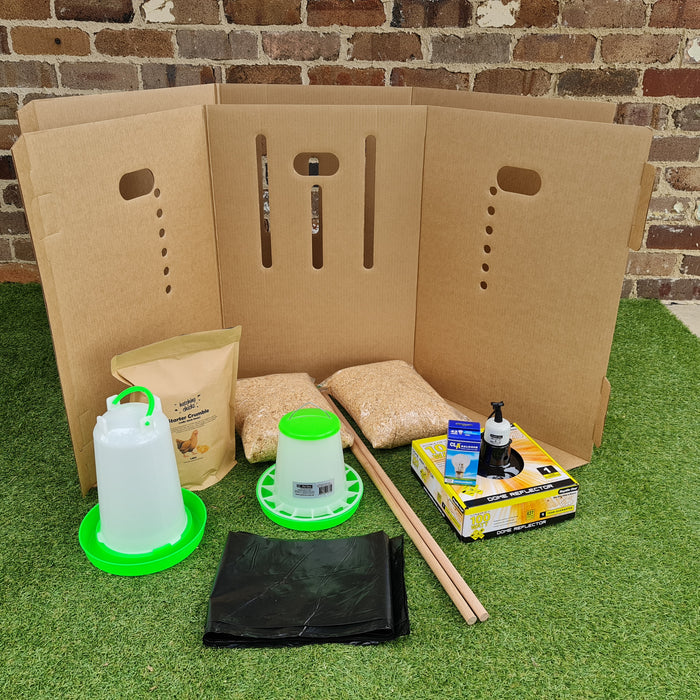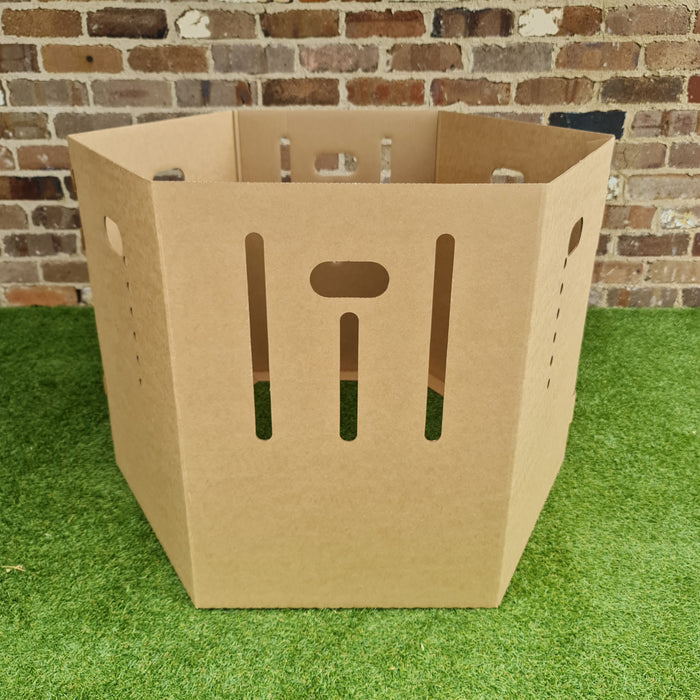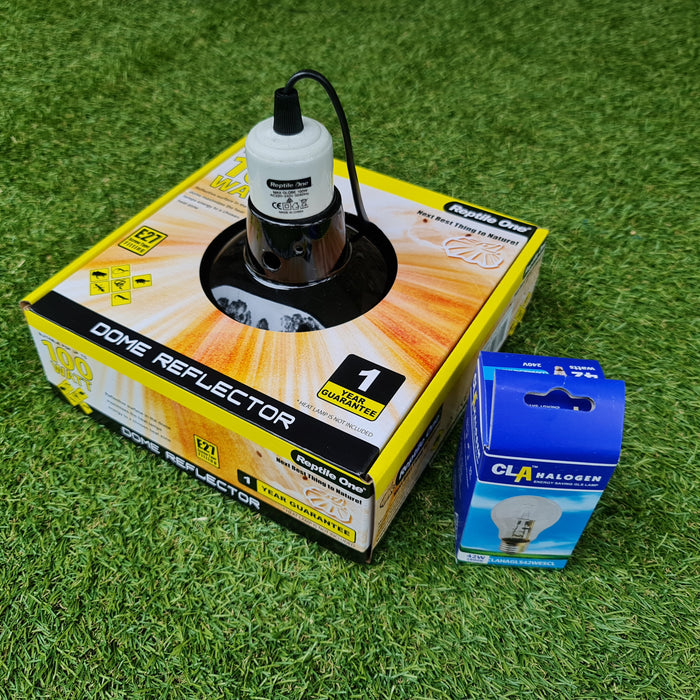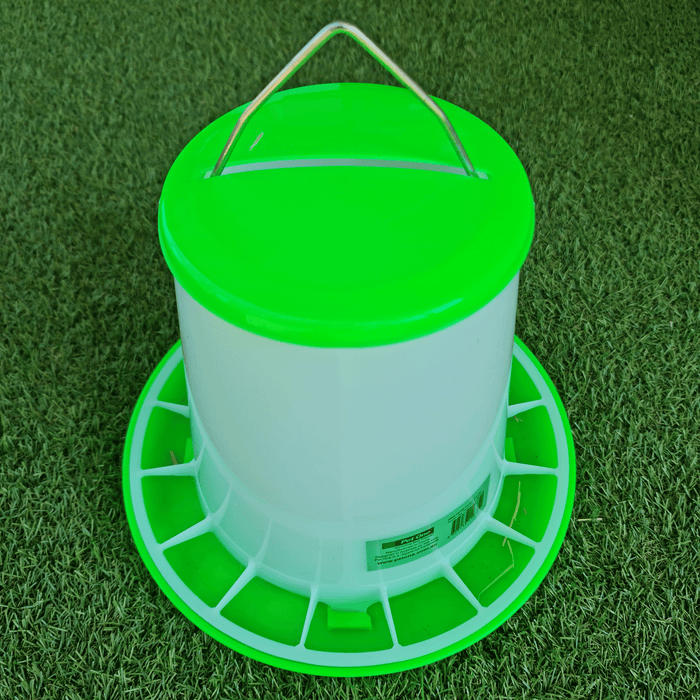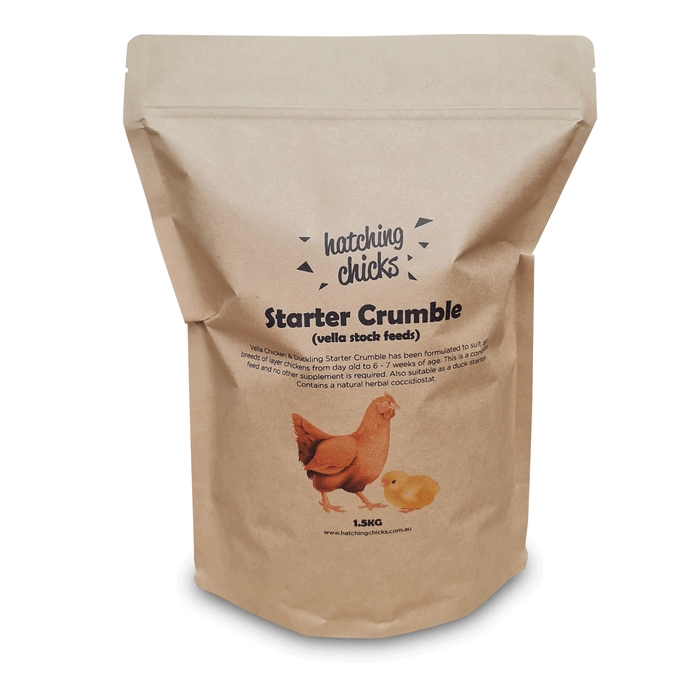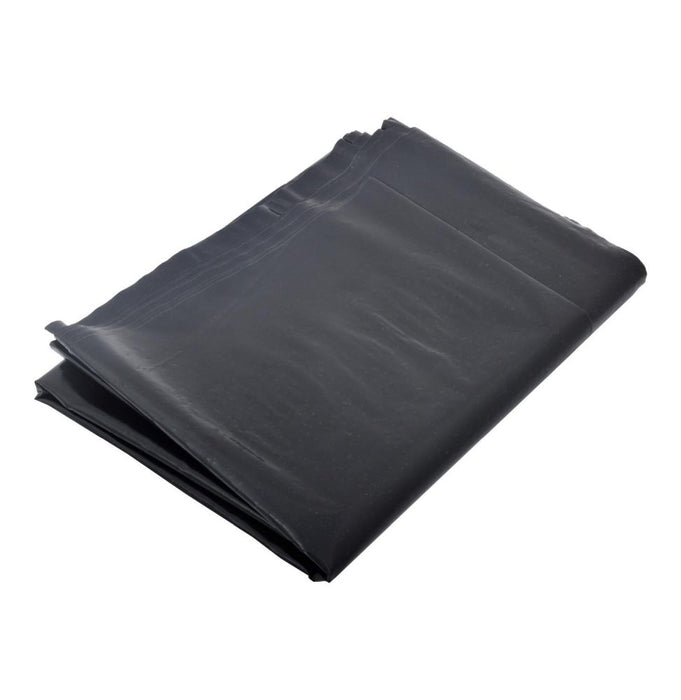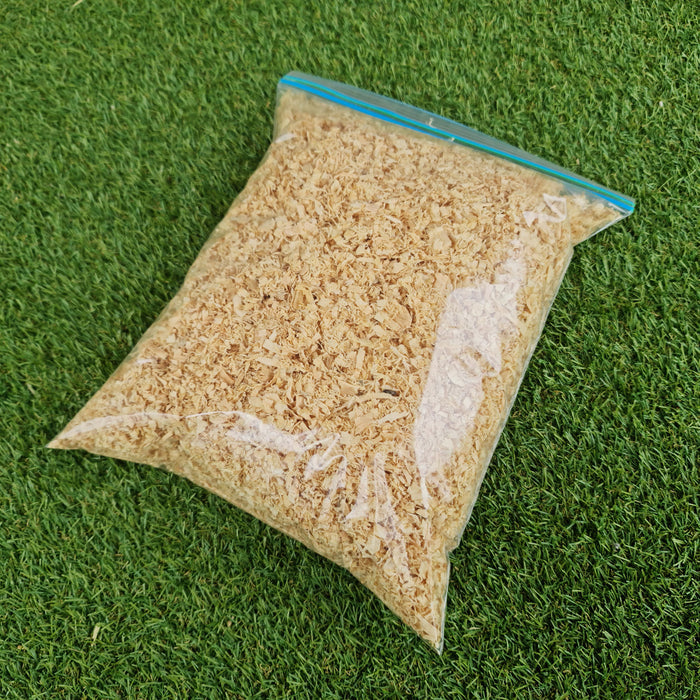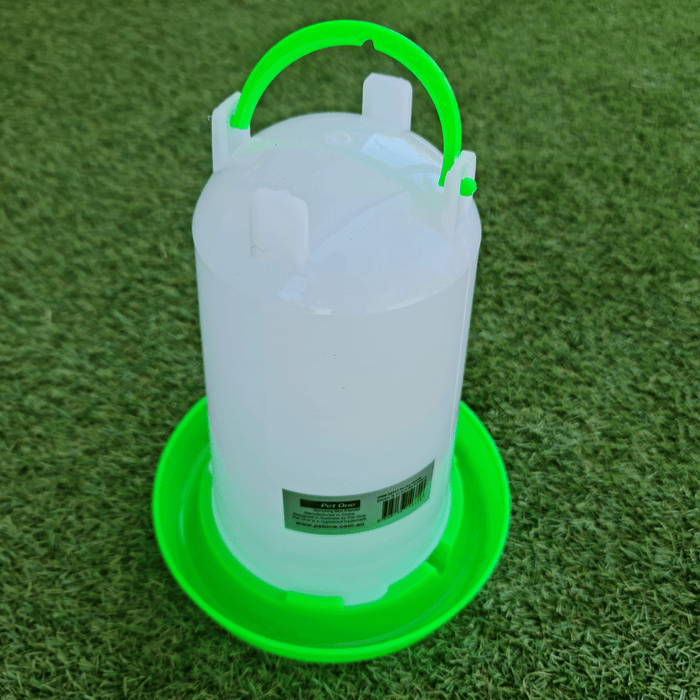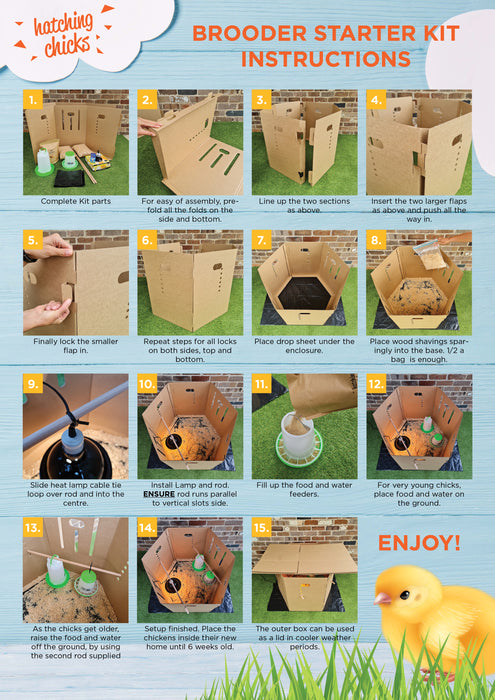Caring for Your Hatchlings
Raising ducklings and chicks together is not advised since the ducklings make the environment excessively damp, which makes the chicks sick with coccidiosis. Adult male ducks can be aggressive towards hens. If raising ducklings be prepared to clean out the litter and top up water numerous times throughout the day. By the time the ducklings are 6 weeks old, weather-dependent, they can spend warm, sunny days outside, carefully supervised and protected from predators. Until the ducks are fully feathered around 9 weeks old, they have trouble regulating their body temperature and need heat.The ducks will grow fast and big, they will be messy and enormous and disorganized by this age. This is not something you should attempt unless you're very devoted to cleaning out a very soggy, messy, and wet brooding area several times a day.
We suggest beginning with twice as many chicks as you intend to have because the M/F ratio is often 50/50. For instance, it is advised that you raise 6 to 8 chicks if you want three layers for your farm. On our website, we explain the rooster pick up service that we offer. Please don't bring even one hatchling home. Being left alone will distress them. We advise a minimum of 3. The simplest approach to nurture your hatchlings is to order our beginning kit from our website, and we'll deliver it to the school or center where you'll be picking up the hatchlings on pick-up day. All you have to do is put it up when you get home with your hatchlings. We have created a package to make it simple for you by combining our experience with careful thought and consideration.
Depending on the season and the type of housing, the hatchlings can't regulate their own body temperatures and need additional heat until they are 6 weeks old. With our brooder kit, we include a heat source that is secure and simple to modify. As the hatchlings get taller, the heat lamp can be raised higher. It can be placed securely at a height of about 5 to 10 centimeters above the hatchlings heads. Their downy coat progressively turns into feathers, and the brooding temperature can be gradually lowered until nighttime only heating is required after which it can be completely stopped. The best approach to regulate the hatchlings' comfort in terms of temperature is to watch how they behave. The temperature is too low if they gather close to the heat source. They are too hot if they travel far away. The heat bulb can be raised or lowered to change the heat source. Additionally, the ventilation and warmth required throughout the winter months are provided by our brooder kits. During the winter, if using starter kits in unheated spaces, you can add more heat by covering the entire set at night with a blanket. As long as you can connect the heat lamp to a power source and protect your hatchlings from dogs and cats, you can use our brooder kit inside your house, garage, or under the cover of a veranda.
Correct brooding temperatures
14-21 days - 25C
21-28 days - 22C
28-35 days - 18C
FOOD
Our starter kits include large water and food containers that are fully adjustable so you can raise the level as the chicks grow taller. This is essential to keep food and water clean as chicks spend most of their time scratching around in the litter and a lot of it can end up in the feed and water if these are not maintained at the right height. These containers are also large enough to be used when your chickens are living outside. Suitable medicated chick food and wood shavings are also supplied with our kits. To raise healthy chicks you will need to feed them the correct type of food at the correct ages. Chick starter crumbles till 6 weeks old, grower crumble from 6 to 16 weeks, layer pellets from 16 weeks on. These manufactured feeds give the birds a properly balanced diet and need to be available to them at all times. At about 6 weeks old green feed such as grass and kitchen scraps can be introduced, but should only form a small part of the diet. Do not give them rotten or mouldy foods. Each chick will consume approx.1.5 kg of chick starter crumble from 1 week to 6 weeks of age. We sell 1.5kg bags of medicated chick starter crumble .You can calculate and order the right amount of food from us to raise your chicks to 6 weeks.
HEALTH
Growing chickens are susceptible to Coccidiosis which is caused by an intestinal parasite. It generally occurs because of damp ground or litter. Symptoms include huddling, reluctance to move about, ruffled feathers, and sometimes but not always, blood in droppings. It will quickly spread to other chickens. Litter must be kept clean and dry. The chick starter crumble we supply has medication for
Coccidiosis added. We also supply wood shavings with our brooder kits as we have found this is the best way to keep chicks dry and clean. Poultry are susceptible to intestinal worms and external parasites such as lice and mites. Medication for this can be purchased from stockfeed / produce stores.
SUPPORT
There is an abundance of information about how to raise chickens or ducks online, so we advise you to conduct your homework and choose a reliable source to lead you through. We respectfully ask that you not ask us for guidance on how to take care of your hatchlings.

